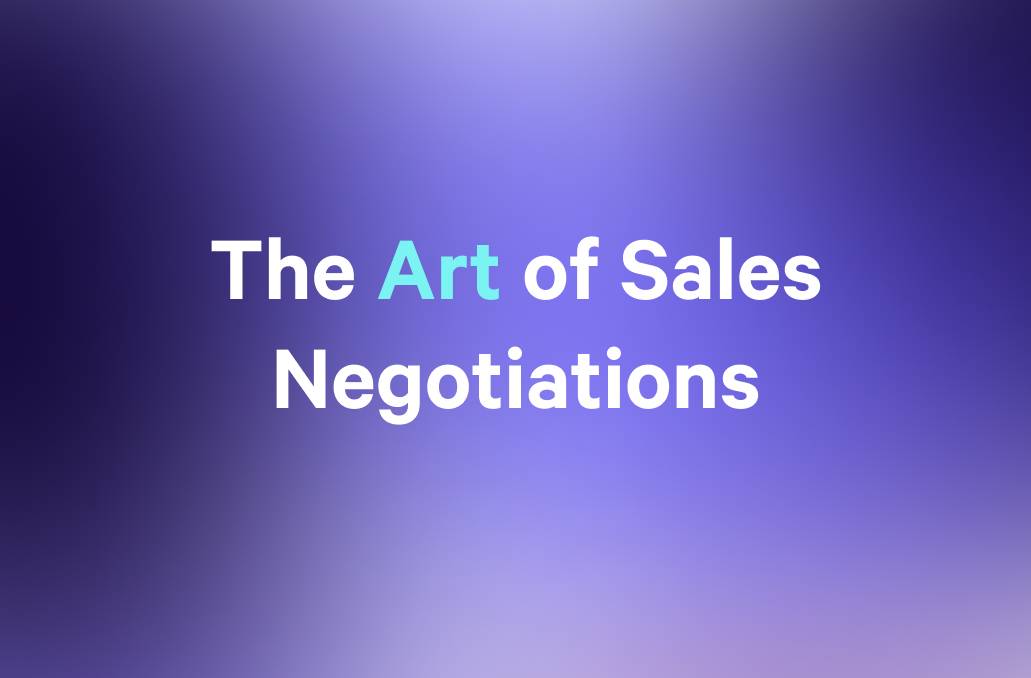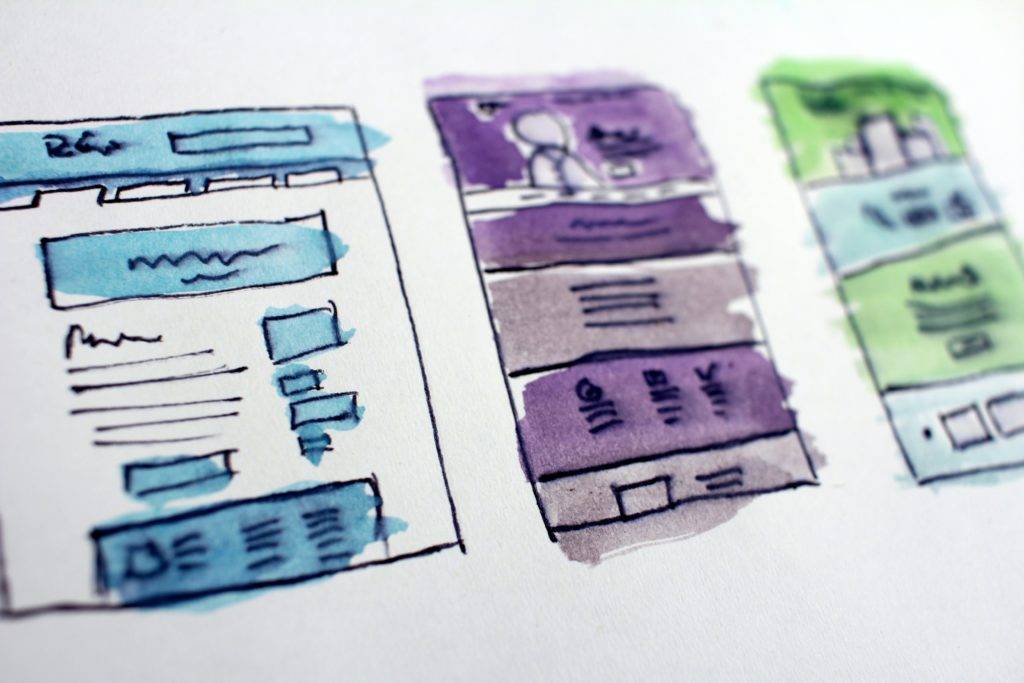Picture it; you’re sitting in a hotel ballroom in an uncomfortable suit with 300 of your closest colleagues, and Eye of The Tiger is blasting through the sound system. You’re probably exhausted from your late flight into Orlando with 50 screaming children. The senior vice president struts to the stage to shake hands with the CEO and offer inspiring remarks to kick off another fiscal year. Now, all you’re thinking about is the candy and ice-cold Diet Coke waiting for you whenever he decides to stop talking.
You're not alone if you find yourself nodding along as we set this scene. Harvard Business Review ran a study showing that 72% of senior sales managers believe their meetings are inefficient and unproductive. (Thankfully, they spared the manager's blushes by not polling their sales teams too….)
Yep, sales meetings have acquired a bit of a reputation over the years. The very mention often enough guarantees some eye-rolling and under-the-breath muttering come meeting time.
However, the problem lies not in their function- I think everyone would admit they serve a purpose - but in how they are all too often poorly executed. Understanding the essential sales traits can help you transform these meetings into productive and engaging sessions.
So, what can you do to ensure that your next meeting serves a better purpose than becoming the butt of a company joke? Plenty of things. While you might not be clamoring to plan your organization’s next meeting, these tips should help your team take your next sales meeting from a waste of time and T&E to an inspirational productivity booster.
What is the goal of a sales meeting?
There are several goals that can be accomplished by hosting a sales meeting. These could include:
- Connecting as a sales team and celebrating the success of the last fiscal year
- Developing or practicing new sales skills in a safe environment
- Learning about company or line of business initiatives
- Creating opportunities to get to know team members
- Providing excitement and inspiration heading into a new fiscal year
- Doubling down on strategy or introducing new products and services
- Learning and professional development
No matter which goals your team hopes to accomplish, a successful sales meeting should focus on three primary areas: alignment, collaboration, and growth.
- Alignment: Sales meetings should align the team with the company's goals and sales strategy. Sales teams should leave the meeting and clearly understand what is expected from each team member and how their role contributes to the bigger picture. Aligning the entire team towards the same sales goal is great use of time during a sales meeting.
- Collaboration: Sales meetings allow team members to share their successes, challenges, and insights. It's a time for collaborative problem-solving and sharing of the best practices and sales processes. And let’s face it when working remotely or traveling a lot; sales can be a lonely profession. So, offering teams a space to connect, build relationships, and bond over shared challenges is essential to morale.
- Growth: Sales meetings should be a space for both personal and professional development. Whether through training sessions, guest speakers, or discussing new sales trends, sales meetings should contribute to the growth of the team members resulting in sales excellence.
It's time to move away from the view that sales meetings are just a routine, obligatory gathering of the sales team (and a way to spend lots of money). Focusing on these objectives is the start.
What separates the best sales meeting hosts?
Being a good sales meeting host means a lot more than just picking a great venue and ensuring the bar is open at the end of the day.
- Preparedness (yes, it’s a word!) is fundamental. The best hosts arrive with a clear agenda, an understanding of the topics, and the necessary materials, setting the tone for an organized and efficient meeting.
- Hosting a sales meeting can (and in larger organizations should) be a shared responsibility. Forming a committee of sales leaders and sales professionals to put together an agenda, select speakers and organize logistics can dramatically increase the effectiveness of a sales meeting. It can also take the burden off sales leaders and provide exposure and growth opportunities for sellers.
- Empathy plays a crucial role; in hosting a sales meeting. Meeting hosts create a trusting environment where everyone can feel heard by actively listening and showing genuine interest in the whole team's perspectives.
- The best hosts can read the room and adjust the pace and tone accordingly, ensuring the meeting remains relevant and productive. It’s tempting to pack a lot into the agenda, but the best hosts know better than to overdo it, as attendees may be tired from travel and can only take in so much information in a few days.
- The best meeting hosts understand that a focus on action ensures meetings lead to tangible results for the company. That’s why they make sure to summarize key takeaways, assign roles and responsibilities, and set follow-up timelines, propelling the team forward and keeping everyone accountable.
- Lastly, positive reinforcement is vital. Celebrating successes, whether complex sales or more humdrum day-to-day achievements (like keeping the CRM up to date day in and day out), creates a culture of appreciation and motivation that resonates throughout the entire sales organization.
While not many of us are blessed with all these skills naturally, luckily, they are all things that can be honed over time.
How to prepare for an effective sales meeting
Preparing for an effective sales meeting is like setting the stage for a performance. You have to arrange all the elements in just the right way to create a meaningful and impactful experience for your audience.
1. Clarify your objectives
First and foremost, what do you want to achieve with this sales team meeting?
Will your team be celebrating success, brainstorming new strategies for lead generation, reviewing and selecting KPIs and success metrics, or bonding as a sales team? The answer may be a mix of all these things, so you might be wise to develop a theme for the meeting with bullet points to support your theme and ensure everyone knows why they are attending the meeting and what they should plan to take away.
2. Craft an agenda
Creating an agenda that allows for a mix of full team business, one-on-one meetings, and some recreation time is both an art and a science. Consider your meeting location and where people will be traveling in from to attend the meeting. Some organizations like to allow Mondays for travel (with a potential dinner on Monday night) and business meetings Tuesday, Wednesday, and Thursday morning. Then Thursday afternoon is open for recreational activities, and team members can travel out Thursday or Friday to avoid missing weekend time with their families.
The business meeting agenda should include business leader keynotes, inspirational guest speakers, and breakout sessions to allow for smaller team discussions or learning and celebrations. Plotting these out over a few days may take some planning and coordination, but it’s worth the effort.
Don’t forget to include a few breaks throughout the day. People may need some time to recharge and check and respond to a few critical emails. While you want to encourage the team to step away from their day to day responsibilities and engage with the meeting content, we know sales is a fast paced job and that there are some new leads or pending deals that just can’t wait a few days.
3. Determine training topics
Having your whole team in one place is a great opportunity to do some training. When planning the training time in your meeting agenda, consider the needs of your sales reps. What are there strengths and where are opportunities to improve? Are there new sales methodologies or skills you want to address? Providing your sales team with feedback and training is crucial.
Even if you don’t have a training and organizational development department or a big budget to bring in an external trainer, you can still provide many opportunities for sellers to learn in the meeting.
Don’t underestimate the power of peer learning. Introducing new technology, reviewing the best deals of the past year, conducting panels of sellers or deal post mortems as a full team can provide great value to your team.
For example, if your team is new to using Qwilr, consider having some members of your team do a session showing off their best proposals. This way, sellers can see features they may not have used in action and learn about how their peers have been closing sales deals. The outcome of a session like this could be some new proposal templates made of the best and most effective language that are available for everyone on the team to use after the meeting.
4. Plan for celebration and team building
Again, we’d be remiss if we didn’t encourage you to take advantage of having the whole team together for some celebration and team building. Many sales teams use their sales meeting as an opportunity to hold some type of awards ceremony. It’s okay to make this fun and engaging.
Ask members of the team to act as masters of ceremonies and bring some life to the process. Highlight achievements of as many members of the team (without making it feel like everyone just gets a participation trophy). To serve as an icebreaker and help people further connect, consider making a video compilation of submissions from anyone on the team that speaks to things that they have personally accomplished over the past year. These could be things like running a first marathon, having a child, mastering a complicated recipe, traveling to a new destination or anything team members are willing to share.
When it comes to team building, gone are the days where you have to send your teams out on scavenger hunts (but you can if people enjoy that sort of thing). Consider recreational activities unique to your meeting location like a golf outing if that’s your team’s vibe. Another popular team building activity you can incorporate is community service. Having the team help at a food pantry or with some maintenance on a community center can be both engaging and rewarding. Just know that finding a local or onsite community service project can take some planning and coordination.
5. Get ready for a strong close
How you wrap up the meeting is as important as how you start it (actually it might even be more important). Summarize the key takeaways, assign action items, and set a timeline for follow-ups. Leave your team with a sense of accomplishment and a clear understanding of the next steps.
When you take this time to prepare, you set the stage for a meeting that's not only productive but also engaging and inspiring.
6. Prepare to be flexible when needed
Sometimes things don’t go exactly to plan. Flight delays, extreme weather, illness and even technology troubles can pop up at the last minute. So, what does this mean for the meeting host or committee? It means that your team should anticipate some of these potential roadblocks and ensure there are backup plans in place.
Well before the meeting it might be worth checking with the venue (before you sign a contract) to find out what options you might have should something like weather or a global pandemic impact your meeting plans.
As a team, you might also want to consider planning an all virtual option for your sales meeting should something derail your plans to get together in person.
7. Draft your run of show
Once you have your schedule locked in, draft your run of show. This spreadsheet should outline every detail of your meeting including who is speaking, what PowerPoint presentation or visual will be on the screens and notes about seating arrangements, lighting and support needs.
This document should be accompanied by the full planning and operational team’s contact information. This way if any issues arise, you’re able to pull the right people together to execute (or come up with) a plan B.
How to run an effective sales meeting
As is now likely becoming more clear, running an effective sales meeting requires more than just having an agenda and sticking to it. It's about creating an environment where your team feels valued, understood, and motivated to excel. It's about weaving together the different threads of communication, empathy, and action to create a cohesive, inspiring narrative. And, its about having the right people in place to handle all of the logistics of conducting a big meeting so you and your team can focus on the most important outcomes of your time together.
Facilitate networking opportunities
How often does your team have real time together? If you’re like most sales teams its typically not a lot so it’s good to be able to leverage sales meetings to create abundant networking (and bonding) opportunities.
If you have a large sales team, consider using your seating chart as an opportunity to facilitate some networking. What you can do is seat people in different configurations throughout the meeting for example:
During the welcome keynote and meeting kickoff, seat people by geography
During the awards dinner, seat teams together so they can celebrate
At another session in the meeting, seat people by line of business or product expertise
If you have executives or different levels of salespeople attending your meeting, try to give them a chance to meet. Its a great opportunity to provide high potential or high performing salespeople exposure to executives to start forming relationships.
In addition to your seating charts, smaller breakout sessions focused on specific topics of interest or small group activities are great ways to get your team members working together and allow them to connect with colleagues they don’t often get much interaction with outside of a quick hello on the weekly sales meeting or town hall.
Connect the Dots
Salespeople often get lost in the day-to-day grind of prospecting, closing deals, and hitting targets. Use your sales meeting agenda to remind your team of the bigger picture. How does each sale contribute to the company's overall mission? Why does what they're doing matter? By connecting their daily work to a larger purpose, you'll inspire everyone on the team to approach their roles with renewed enthusiasm and dedication.
Balance the Positive and the Constructive
It's easy to fall into the trap of using sales meetings to discuss what's not working. While you want to (and should) address challenges and setbacks, it's equally important to celebrate successes and achievements. Make sure your meetings have a healthy balance of both. Recognize the top performers and discuss how the team can overcome obstacles and improve.
The Power of the Pivot
Sometimes, despite your best intentions, a meeting might veer off course. (It happens to the best of us!) Maybe a particular issue triggers strong emotions, or the team gets stuck in a loop of negativity.
That's when you need to pivot. As the host, you must steer the meeting back to productive territory. Acknowledge the issue, but suggest that it be discussed in a smaller group or at a different time. Then, gently guide the conversation back to the pre-arranged sales meeting topics.
Action Items and Follow-Ups
A meeting without action items is like a story without an ending – it feels incomplete. Before concluding the meeting, summarize the key points and assign specific action items.
Who's responsible for what? What are the deadlines? Make sure everyone knows what's expected of them. And don't forget to follow up. Hold your team accountable for their commitments and celebrate when they are fulfilled.
Keep it Real
Remember, your salespeople are human beings. They have good and bad days, successes and setbacks, optimism and doubt. Be honest with them. Share your challenges and how you've overcome them. When they see you being vulnerable, they'll feel more comfortable being vulnerable too. And that's when the honest, meaningful conversations happen.
An effective sales meeting isn't just about discussing targets and sales tactics. It's about creating a space where your sales team members can connect with each other, the company's mission, and their sense of purpose. It's about crafting a narrative of collective endeavor, shared success, and mutual respect.
So, as you step into your next sales meeting, remember – you're not just a host; you're a storyteller, a guide, and a catalyst for change.
How to follow up an effective sales meeting
Following up after a sales meeting is like putting the finishing touches on a masterpiece. It ensures that the insights and decisions from the meeting are not forgotten but are put into action.
Here are a few key steps to make sure your sales meeting leaves a lasting impact:
- Summarize and Distribute Minutes: Quickly after the meeting, send out a summary of the key points discussed, decisions made, and action items assigned. This serves as a reference for everyone and ensures no misunderstandings about what was agreed upon.
- Follow Up on Action Items: Make sure that all the action items assigned during the meeting are being worked on. Check in with the responsible parties periodically and offer assistance if needed. If you have a large sales organization, equip your sales leaders with tools to use to ensure learnings are being reinforced during one on ones and sales coaching sessions.
- Communicate Any Updates or Changes: If any significant updates or changes arise that are relevant to the topics discussed in the meeting, communicate them to the team. This could be new information, a change in direction, or an update on the progress of action items.
- Gather Feedback: Ask your team for feedback on the meeting. Were their expectations met? Was the meeting productive? What could be improved? This will help you refine your approach for future meetings.
- Celebrate Achievements: As your team starts to see the results of the action items from the meeting, celebrate those achievements. Recognize individuals who have made significant contributions. This reinforces the value of the forum and encourages active participation in the future.
- Set Up a Follow-Up Meeting: Depending on the topics discussed and the action items assigned, it might be necessary to schedule a follow-up meeting. This can be a check-in to review progress from the previous week, a deeper dive into a specific topic, or a discussion on new developments.
By following these steps, you’re ensuring that the momentum from your sales meeting continues long after it's over. You're not just hosting a meeting but fostering a culture of action, collaboration, and continuous improvement.
FAQs
What are the best tools to use during a sales meeting?
There are many tools to aid in sales meetings, but using ones that enhance collaboration and engagement is essential. Consider using visual aids and engaging platforms like Kahoot, Mentimeter, or any program that allows audiences to participate in the session by answering polls or asking the speakers questions.
What are some sales meeting best practices?
Best practices for productive sales meetings include setting a clear agenda, ensuring everyone comes prepared, actively involving all participants, sticking to the allotted time, and following up with a summary and action items. Fostering a positive and engaging environment is also crucial.
How can I make sales meetings more engaging?
To make sales meetings more engaging, sales leaders should encourage participation from sales representatives, use real-life examples and success stories, keep the agenda concise and focused, and introduce new content or guest speakers to keep things fresh.
Remember, a sales meeting should be a two-way conversation where all participants feel encouraged to share and contribute. Role-play of sales calls or other outreach tactics and sales pitches are also good potential sales meeting ideas if you want to try something different.
Final Thoughts
Sales meetings are crucial in team-building, fostering collaboration, aligning strategies, and driving sales performance.
As you implement these best practices, consider using Qwilr to help create personalized and impactful sales documents that can be easily shared with your team or prospects and used after the meeting at appropriate places in your sales cycle. Our easily customizable drag-and-drag blocks will save you precious time on the preparation, so you can work on an well-prepared and engaging agenda. And keep that muttering from the team to a minimum….
Try it today for free and see for yourself.
About the author

Brendan Connaughton|Head of Growth Marketing
Brendan heads up growth marketing and demand generation at Qwilr, overseeing performance marketing, SEO, and lifecycle initiatives. Brendan has been instrumental in developing go-to-market functions for a number of high-growth startups and challenger brands.


